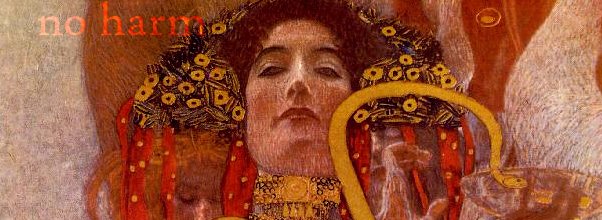strong
I fell asleep in pain and I woke up in pain. Because I'm currently unemployed (going on two weeks now since my last job ended), it wasn't as big a disaster as it could have been. However, to say that it gave me pause to be in such pain right now would be an understatement. I didn't want to stay in bed because being unemployed is freaking me out enough, evoking the questions of how employable am I? E.g., would I be able to do a corporate training job which otherwise sounded exactly like something I can do and would enjoy doing but for the fact that the job description says I must be able to lift and/or move up to 25 pounds...with or without reasonable accommodations?
The negative effects of acutely experiencing the aspects of my physicality which prompt such questions in the first place would be worsened by feeling like I had to spend the day in bed. And for me, when I'm already worrying about my limitations, spending even extra hours in bed starts to feel like the dread practice of spending the day in bed. And so I got up and crept out into the kitchen. I sat on the floor to feed the cat (can't bend over) and then stood up to make myself a cup of coffee. I did all these things because this is normal. Coffee, food, showering, getting dressed. This is what I'd need to do on a normal work day, and if I can't do them today, does that mean I can't do them reliably enough to be employed on a regular work week kind of basis?
As you can probably guess from my tone here, this little plan of mine ended badly. After having A___ help me get back in bed (and get the requisite cold wet cloth for my head - don't laugh, it does work when I'm feeling "faint", for lack of a better word*), I took some donnatal which has been sitting untouched in my drawer for the better part of a month. I'd rather not be taking but the current distribution problems with hyoscyamine have made my preference a moot point. The donnatal knocked me out pretty good. I slept for another two hours. This time, I woke up in less pain but feeling emotionally unwell. I'm frustrated and I feel less hopeful too. I couldn't shake thinking that if this had been a work day, I'd be looking at a really shitty decision - call in and risk looking bad or go in and risk passing out (at a desk or - my personal least favorite - in a bathroom).
It's situations like this morning's pain crescendo which tend to push me to preemptively limit myself. I.e., feeling bad? Ok, so don't get out of bed. Call it a "bad day" and try to take care of myself so I don't turn one bad day into many. This attitude though, or maybe it's more of a practice...how about "practitude"? This practitude is not without conflict. The conflict and attending negative feelings arise when I am faced with feeling the need to do what I believe (empirically) is best for me physically but which behaviors are considered by our social standards (and myths, and principles, etc) to be self-disabling. As much as I'd like to think I am a self made person, I cannot deny that it seems I have internalized some of the social bullshit about illness. Maybe, to cut myself some slack here, it's not so much internalizing as it is simply awareness of these attitudes and how they will be applied to me. I have been (casually and not so casually) judged for engaging in preemptive "self-disabling" behaviors in the past and so maybe now I just have been conditioned to be hyper-aware of them.
I dunno. I'm thinking it's more the former, the internalization thing. I think this is more plausible and one reason I believe this is that I wasn't always a chronically sick person. I wasn't always as limited as I have been in the last 6 years and so this means I was in fact one of the people who probably judged others. Let's see....have I? Hard to know. The lens of the present quite reliably distorts attempts to get a view of the past.
Well it's something to think about anyway. How to deal with my conflict has lead me to some research. I just ran across a paper called "Health Psychology: Psychological Adjustment to Chronic Disease" (Stanton, Revenson, and Tennen 2007) where some aspects of the struggle I'm talking about was summed up quite nicely.
Adjustment is most commonly defined as the presence or absence of diagnosed psychological disorder, psychological symptoms, or negative mood.
Unbalanced attention to positive adjustment can also have untoward consequences. The expectation of the unfailingly “strong” patient permits the ill person little latitude for having a bad day (or a bad year). Presenting a positive face may become prescriptive, so that one falls prey to the “tyranny of positive thinking” (Holland & Lewis 2000, p. 14) or the notion that any distress or negative thinking will exacerbate chronic disease.
* = I'd like a better word since "faint" doesn't distinguish between that shitty but rather benign low blood pressure moment upon standing and that sweat drenched, gagging, nightmarish feeling thing that happens when I am going under completely.





No comments:
Post a Comment